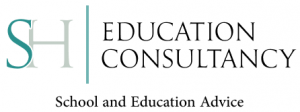
The Early Years Foundation Stage (EYFS) is the first part of the National Curriculum for children aged 3-5, therefore covering both Nursery and Reception. During those years children will be assessed regularly in seven areas of learning: three ‘prime’ areas (Communication, Physical Development and Personal, Social and Emotional Development) and a further four‘specific’ areas (Literacy, Mathematics, Understanding of the World and Expressive Arts and Design). The priority is for children to be secure in the ‘prime’ areas so that they are able to progress onto the more ‘specific’ ones. There are a number of crucial skills children will be expected to have mastered before entering the more formal world of Key Stage One, and a selection of these are listed below!
By the end of Reception, teachers are hoping to have helped develop confident, independent and expressive five-year-olds. Children should be able to negotiate spaces effectively and move in a variety of ways including running, hopping, skipping and jumping with control. At this point, children should be confidently separating from carers, able to select resources and investigate their interests independently. Crucially, children should be able to take others into consideration in their behaviour, consistently taking turns and sharing as well as communicating their feelings, likes and dislikes to other adults or children.
In terms of the two core areas of learning at Key Stage One – Literacy and Mathematics – there are certain expectations of children:
Mathematics:
- Rote counting to at least twenty, and counting up to ten (or preferably twenty) objects accurately.
- Recognising and ordering numerals 1-10, and be working on 10-20.
- A rudimentary understanding of addition and subtraction, and should be able to calculate one more or one less than any number up to ten.
- Identifying and naming common 2D and 3D shapes.
- Observing and recreating repeating patterns and numerical sequences.
Literacy:
- Knowing the sounds of all twenty-six letters, as well as some digraph sounds(such as, th, sh, ng).
- Reading and writing simple CVC – consonant-vowel-consonant – words (such as ‘hat’ and ‘pig’) and attempting more complex ones.
- Recognisable and clear written letters, with clear finger spaces between words.
- Demonstrating the beginnings of basic punctuation.
- Communicating clearly in sentences and exploring new and more complex vocabulary.
Reception teachers assess children on these criteria regularly, estimating whether they are “Emerging”, “Expected” or “Exceeding” in each of these areas.
Whilst I have listed some of the curricula expectations above, it is common that a child might be “Exceeding” in Mathematics or Literacy, and yet they could easily be below the “Expected” level in Personal and Social Skills or Creative Development.
Any areas requiring improvement will, therefore, be of particular focus either in the next term or academic year.



I cannot thank you enough for the wealth of knowledge and insights I’ve gained from this website. It has been an invaluable source of information, and I’m deeply grateful for your generosity. I appreciate the diverse range of topics covered and the depth of knowledge shared. It’s a testament to their commitment to providing valuable information. Thanks! ID : CMT-T184GTOT1DIVO9ZX1N